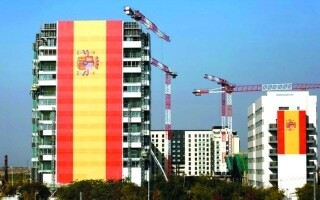
In Spain, the rental housing problem has become one of the most complex issues. Rental prices have been steadily rising for many years. In response to this, agents recommend that tenants seek housing beyond the limits of city centers, where prices are more reasonable. However, such a decision is not always possible. Due to the rise in prices for housing, they have already reached the limits in some cities. In some areas, prices even exceed recommended values. This data is included in the latest annual report from the Spanish bank.
"Investment commercial housing" is one of the main reasons for the crisis in the housing sector in Spain, as it significantly increases prices for housing, failing to meet the needs of the population and exacerbating social isolation. To combat the crisis, innovative and effective collective housing projects have emerged, allowing for improved access to housing at reasonable prices.
It should be noted that cooperative housing is becoming an increasingly popular solution in Spain, representing a model of housing that fosters collaboration and aims to ensure access to housing at reasonable prices. This model does not allow for the sale or rental of housing individually, which excludes speculation in the real estate market and ensures the stability of housing.
The "La Borda" project in Madrid is an example of such housing. Recently, projects for housing, specially designed for the elderly, have emerged, ensuring comfortable and active living. The "Intergenerational" project with 35 apartments in Madrid serves as a bright example of such housing.
Such housing projects not only provide places for living but are also aimed at eliminating feelings of loneliness, fostering social solidarity, and improving the lives of elderly people, facilitating their integration into society. Therefore, such housing projects are considered a means of addressing social, ecological, and economic problems, especially in projects oriented towards elderly people.
The housing cooperation group in Spain strives to obtain greater government support for expanding collective housing projects, considering them as social and economic solutions for addressing challenges posed by population growth and social changes.
Thus, the choice of collective housing as a means of addressing social issues is becoming increasingly relevant and significant in Spain.














